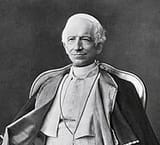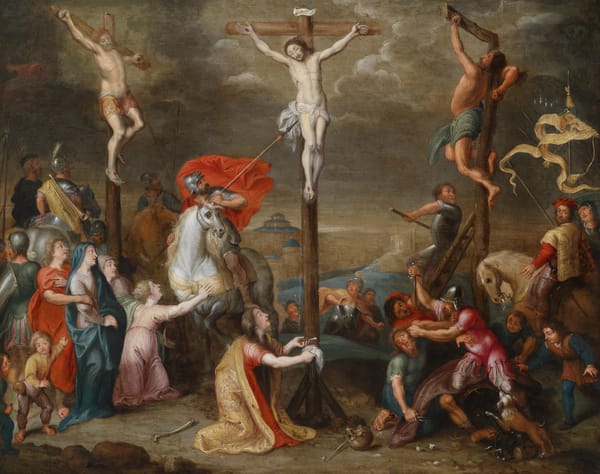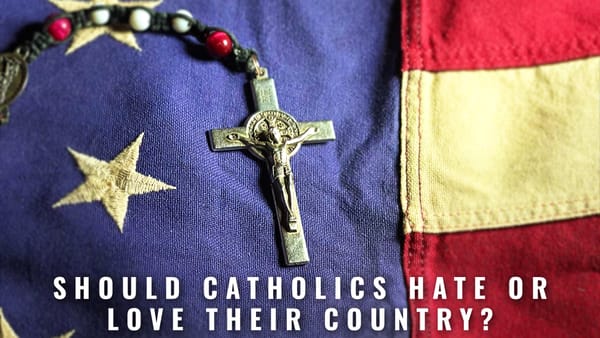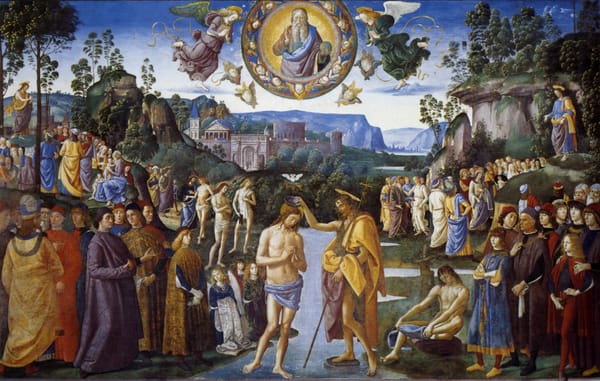Who Is To Be Considered a Christian? The Hidden Truth from St. Peter Canisius.
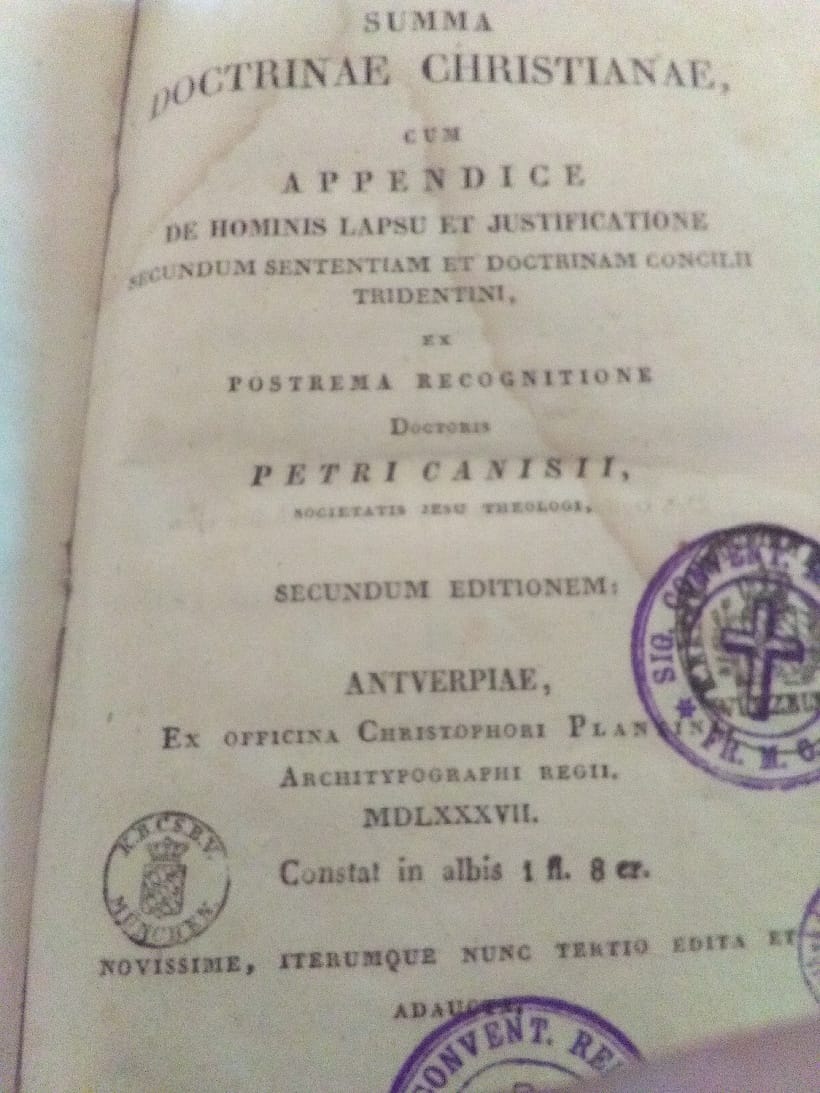
This question, posed right at the beginning of St. Peter Canisius' Catechism, is becoming more and more important each day to ponder. Many souls today lay claim to the Christian name, but are they truly to be considered as such? Some people are confused by the myriads who say they are Christian while having so many different beliefs. What is the truth on this issue?
About 7 months ago, I covered the entire first chapter of St. Peter's Catechism in which he opens by addressing this very question. That video will be linked at the end of the article. It's a fascinating first chapter, On Faith and the Creed, and it is certainly not friendly to modernism. In fact, his opening question and answer is something many who claim to be Catholic today find difficult to accept. He states:
Who is to be called a Christian? He who professes the wholesome doctrine of Jesus Christ, true God and Man in His Church. He therefore who is a true Christian, utterly condemns and detests all other religions and sects, that are to be found elsewhere in any nation or country, out of the doctrine of the Church of Christ - such as the Jewish, heathenish, Turkish or heretical sects - and who firmly stays himself in the true doctrine of Christ.
As we can see, many today who claim to be Christian do not meet this criteria. Many are outside the Church of Christ for several reasons, such as failing to profess the wholesome doctrine Christ professed, and failing to detest all other religions. Oh they may claim to love Christianity, but many of those people also esteem and refuse to condemn or detest all the false religions of the world.
As a brief aside, this answer alone would show that men like Robert Prevost ("Pope" Leo XIV), Jorge Bergoglio ("Pope" Francis I) and their ilk are not Christians; for they go out of their way to esteem the false religions of the world. They clearly do not detest and condemn all the false religions.
Unfortunately, some men, when faced with the truth of this teaching from St. Peter, will begin to seek a way to expand and extend the umbrella of Christianity. How exactly is one in the Church of Christ for example? Maybe one can be in the Church simply by professing the doctrine of Christ on their deathbed? Perhaps a man could be inside the Church if he WOULD profess the doctrine of Christ, if only someone had preached it to him? At first glance, this may seem possible when one reads this quote, but if one digs a little deeper, the hidden truth is brought to light, and the darkness of error is scattered.
In the opening picture, we see the title page of the second edition of a 1587 Latin copy of St. Peter's Catechism. The pictures you are about to see were sent to me by Fr. Dominic Crawford - the Latin copy is in his personal library. As he was perusing the Latin, he noticed something when it was compared to the English. Let's look at them side by side (or top to bottom) and see if you can spot the difference. Even if you cannot interpret Latin, I suspect you will be able to see pretty clearly what is amiss:
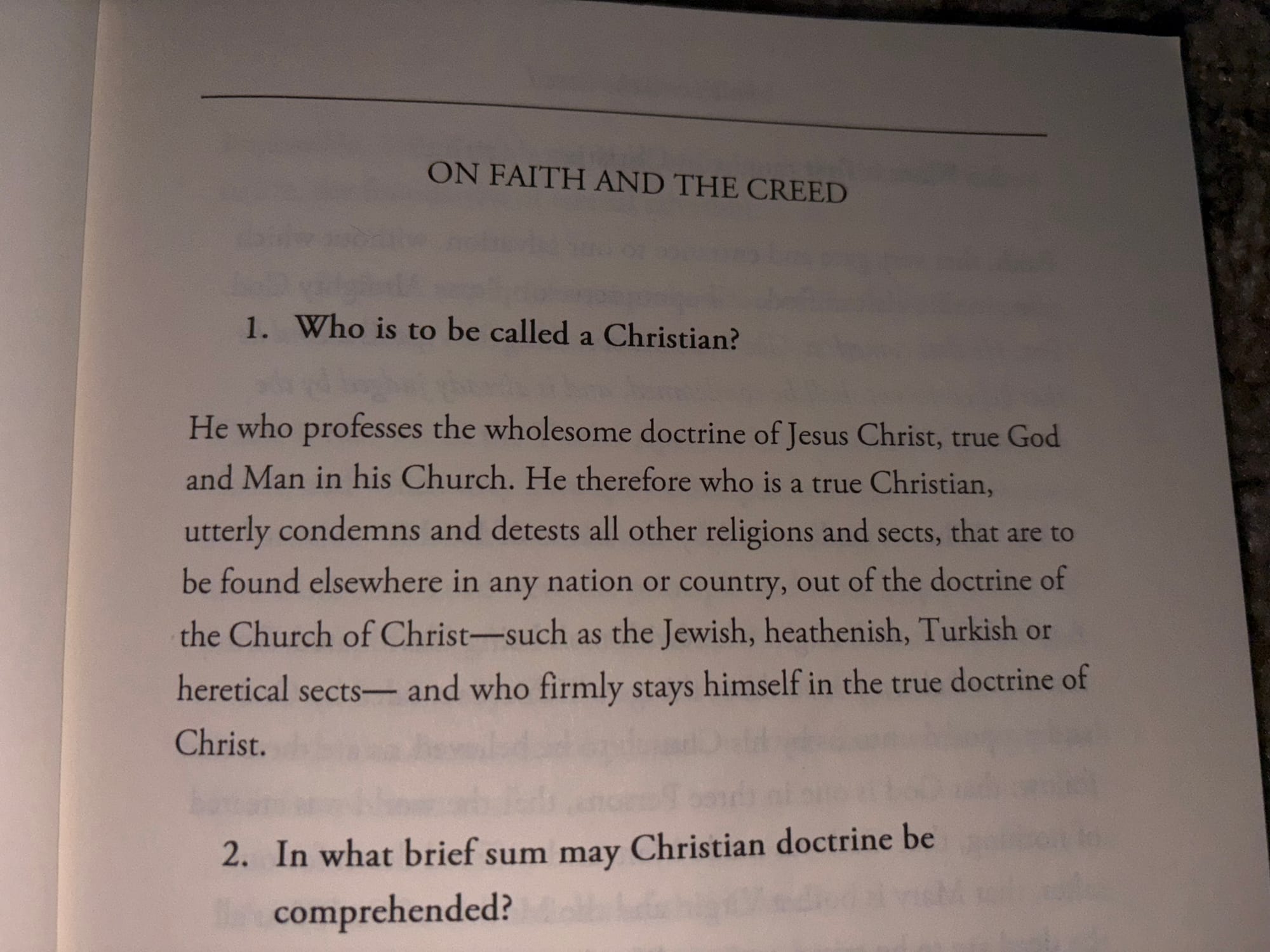
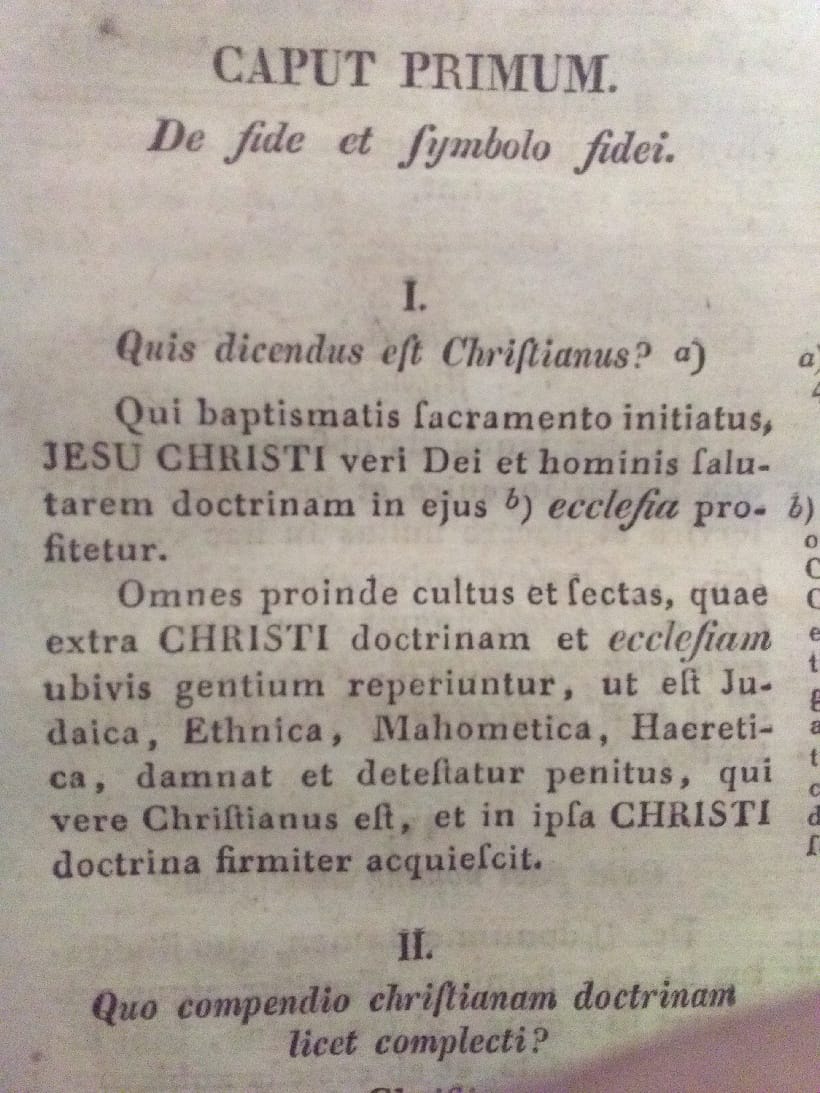

Who is to be considered a Christian?
Qui baptismatis sacramento initiatus, Jesu Christi - Who, initiated into the sacrament of baptism, of Jesus Christ...
This powerful portion seems to be missing from the English translations. With this information coming to light, praise be to God, the question about who is to be considered a Christian is settled - he who is initiated into the sacrament of baptism, who professes the wholesome doctrine of Christ and detests all other religions of the world.
There is no way to be a Christian without these things - faith and baptism. Today, baptism is the most objected-to requirement. Many try to claim that it isn't actually necessary to be considered a Christian; that there could be extenuating circumstances which would allow for one to be considered a Christian without it; but St. Peter refutes this here. No extenuating circumstances are given. One must be baptized, profess the true doctrine of Christ, detest all other religions, and stay firmly in that faith and Church of Christ.
It is important to stress that St. Peter is a saint, doctor of the Church, Papal theologian at the Council of Trent, and his Catechism is one of the most approved and endorsed Catechisms of all time. If any Catechism carries weight, it is his. You can read more about this great saint here:

Interestingly, the Pope our Newsletter is dedicated to, Pope Leo XIII, wrote an entire Encyclical, Militantis Ecclesiae, about St. Peter Canisius. In it, he stated this about The Catechism (Summa) of St. Peter:
He had wonderful success in preventing the inexperienced from getting caught in the nets of error. The Summa which he published for this purpose is a compact and tightly-knit work, written in beautiful Latin and not unworthy of the Fathers of the Church. This remarkable work was enthusiastically received by learned men in almost all the countries of Europe.

Pope Leo XIII specifically states that the Summa (Catechism) was published for the purpose of "preventing the inexperienced from getting caught in the nets of error." How could this be possible if his Catechism had a major error on who is to be considered a Christian in the very first section? If one really can be considered a Christian without initiation into Christ by the sacrament of baptism, then St. Peter erred in the opening sentence and Pope Leo XIII's endorsement no longer makes any sense; as St. Peter would have been leading people into error right out of the gate. One must therefore say that either St. Peter, and Pope Leo XIII, were correct, or that they were wrong. The Catechism either truly taught on this matter, or it didn't. One cannot say, however, that it is compatible with the modern understanding that men can be Christians (in certain circumstances) without sacramental initiation into Christ. Either that is possible or it isn't. St. Peter (and Pope Leo XIII by his endorsement of the Catechism) say it is not possible.
I am extremely grateful to God that he used Fr. Crawford to bring this information to light, and I pray you all share this article so that others may be illumined with the truth. Please pray for the conversion of souls - many are deceived by the modern error that men can be Christians without sacramental initiation into Jesus Christ.
If you are interested in more from this entire chapter, On Faith and the Creed, I recorded this video 7 months ago on the entire chapter. Please like, share and subscribe to our YouTube channel if you haven't already.
